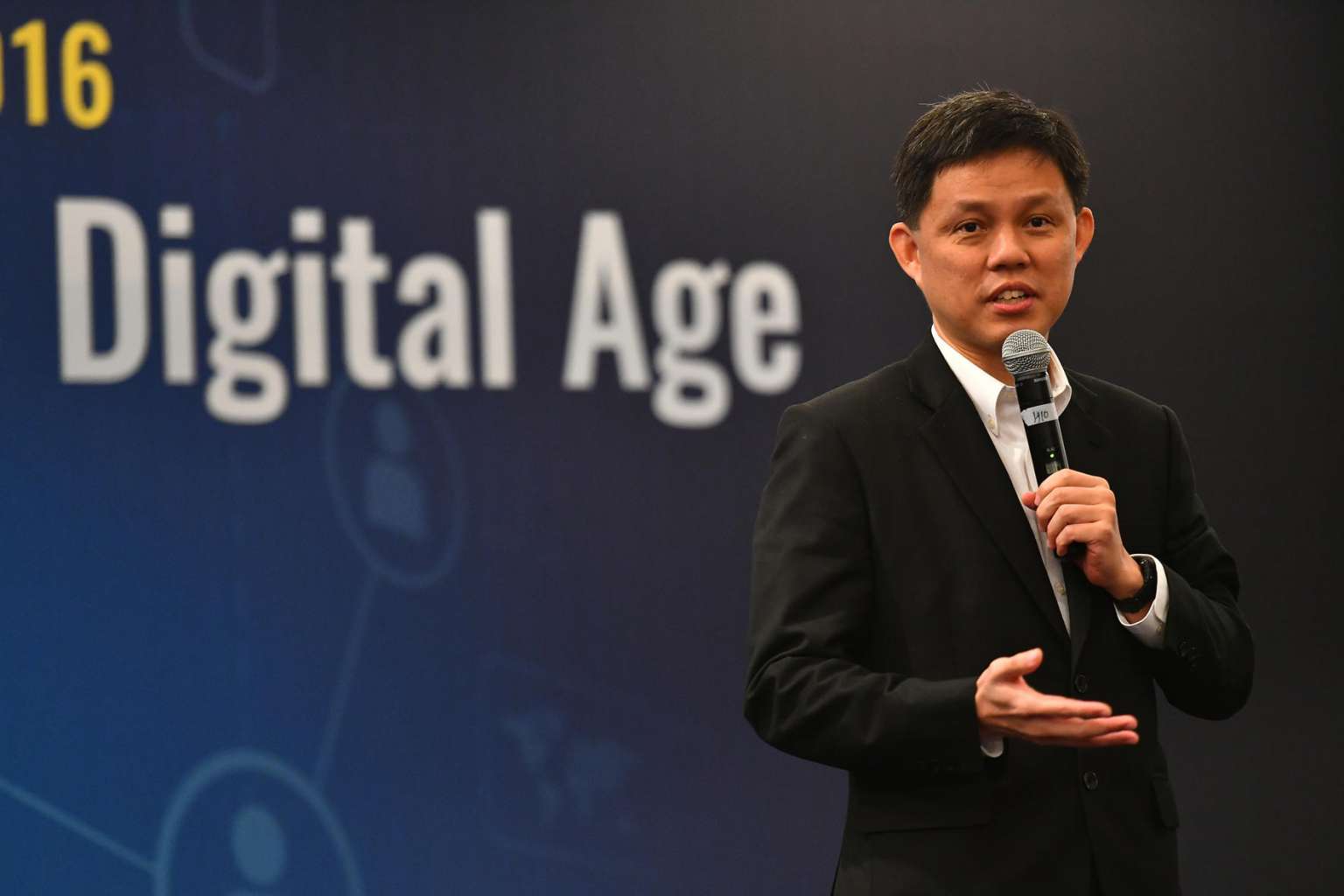Government watching economic numbers closely, will step in to help if needed: Chan Chun Sing
Sign up now: Get ST's newsletters delivered to your inbox

Minister in the Prime Minister's Office Chan Chun Sing said the Government is keeping a close watch on the economy on Nov 18, 2016.
ST PHOTO: LIM YAOHUI
Follow topic:
SINGAPORE - Minister in the Prime Minister's Office Chan Chun Sing on Friday (Nov 18) said the Government is keeping a close watch on the economy and will not hesitate to step in to help if needed.
"It is still early days, we are watching the numbers very closely," said Mr Chan, who is also labour chief.
"We've done some things in a very specific and targeted way. For example, we have rolled out industry transformation plans, we have gone in to help groups of workers affected by the current economic slowdown or structural changes," he added, reassuring Singaporeans that measures are in place to ride out the slowdown.
"If we need to do more, we will do more in the coming months, but we are watching this very closely."
Mr Chan was responding to questions from reporters, who asked him about the Government's response to the possibility of Singapore entering a technical recession.
Preliminary figures from trade agency IE Singapore released on Thursday showed non-oil exports slid 12 per cent last month over a year earlier, on the back of a sharp decline in the volatile pharmaceuticals sector.
The latest numbers raise the odds of a technical recession, which is defined as two consecutive quarters of decline in economic output.
Mr Chan however stressed that there is a very big difference between the current set of numbers and what was seen in the 2008-2009 recession. The minister said that in 2008, there was a general slowdown across all sectors, but in today's environment "you see some sectors not doing as well, but you see other sectors doing better".
E-commerce, education and healthcare sectors are among the sectors that are doing well, while oil and gas, and shipping, are among those badly affected by the current climate.
This is why the Government's strategy is to take specific and targeted measures to help sectors that are not doing as well, while also rolling out plans to help already-performing sectors do even better.
Mr Chan also sought to put the economic figures in perspective, saying that "in the near term, there are always some gyrations in performances".
The important thing, he said, is to make sure that Singapore gets its long-term fundamentals right so it can ride through the current economic slowdown and prepare for the future.
He listed three of these basics. One, making sure that Singapore is conducive for business while keeping a tight ship by being disciplined in its fiscal spending.
Two, enabling business to focus on regional and global markets, beyond Singapore's shores. Mr Chan said the Committee on the Future Economy, of which he is deputy chairman, will release its report in the first three months of next year. A large part of it will focus on helping Singapore's small and medium-sized enterprises and start-ups grow bigger and becoming the next generation of homegrown multinational corporations.
Three, helping workers stay relevant to the job market, and matching those who lost their jobs to new ones as soon as possible.
Mr Chan was speaking on the sidelines of the U Future Leaders Summit, a one-day conference attended by 1,000 local professionals, managers and executives (PMEs) where industry leaders discussed market trends that will benefit job seekers and working professionals.
In a speech at the summit, he also announced a new programme to expose workers to innovative practices at leading multinationals that will start next year, with visits to these companies' innovation labs.
These seven companies - Dentsu Aegis Network, DHL, Intel, Mastercard, Microsoft, Procter & Gamble and Unilever - will open their labs to outsiders for the first time. The aim is to inspire workers to think out of the box and acquire the latest know-how and insights.
The conference is part of a two-year series of workshops and events held by Singapore Press Holdings (SPH) and NTUC to help PMEs gain skills and find jobs.
It is part of ongoing efforts by the National Trades Union Congress (NTUC) to equip workers with skills that will prepare them for a rapidly-changing economy, where continuous learning and creativity are key.

